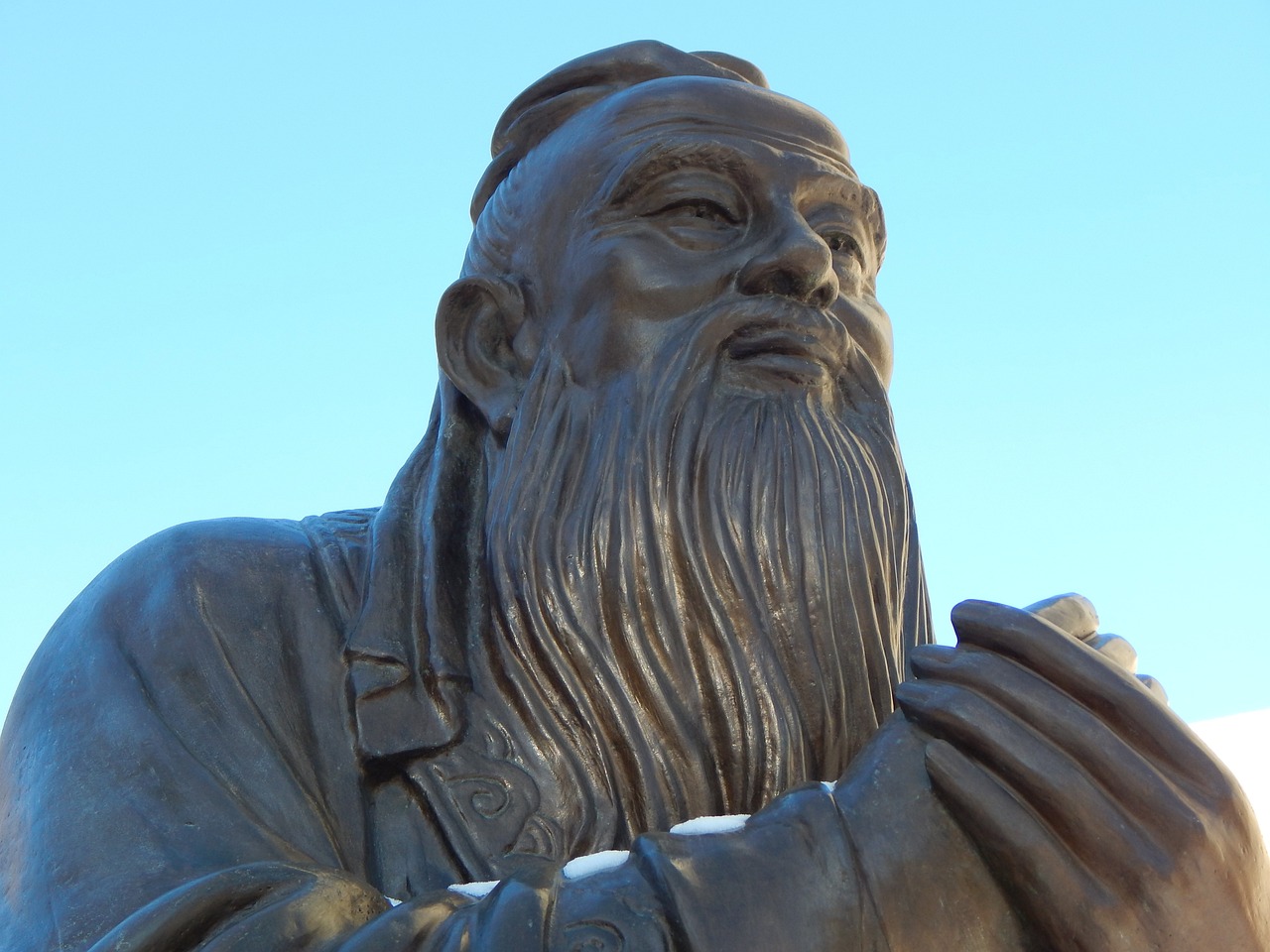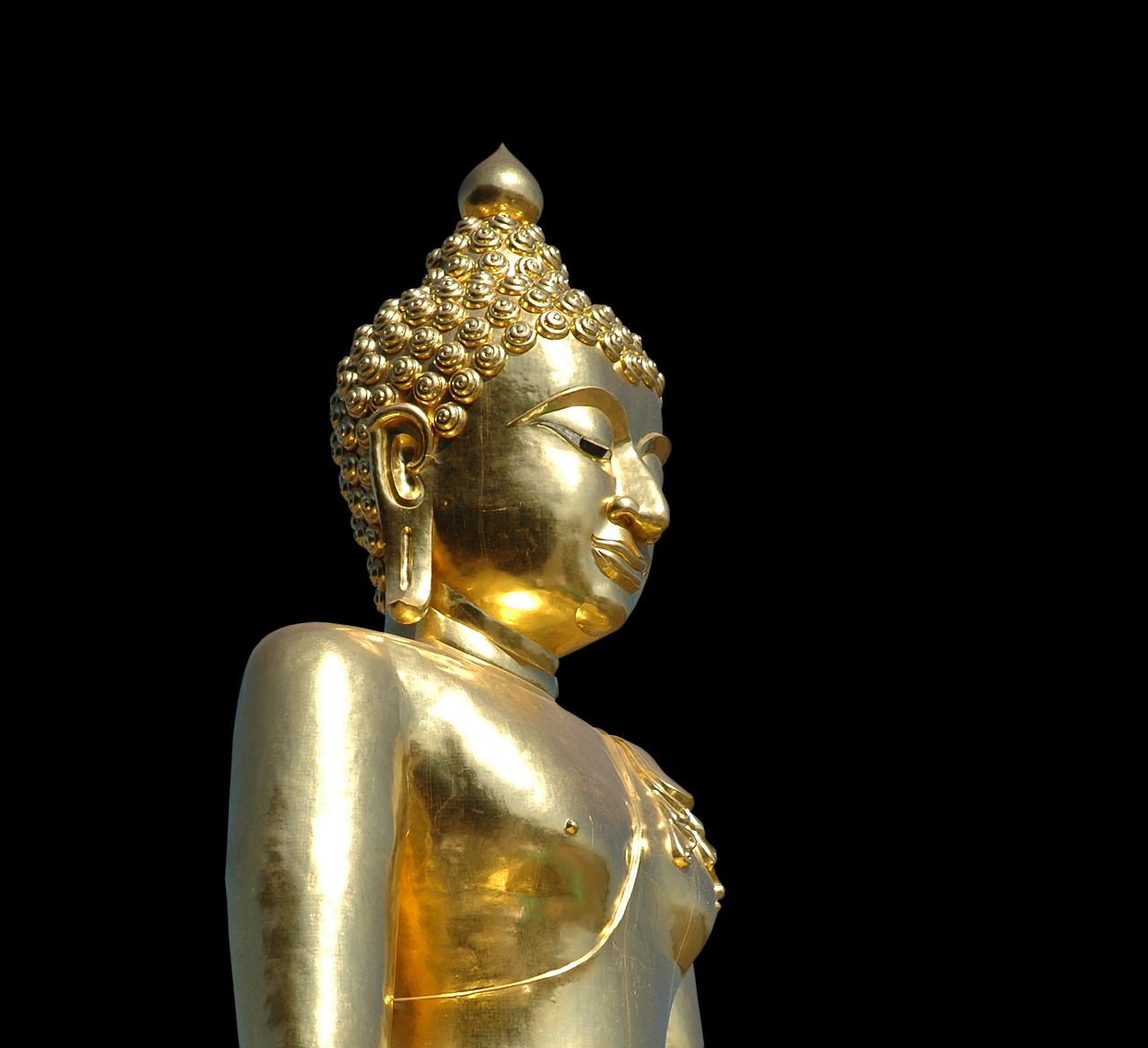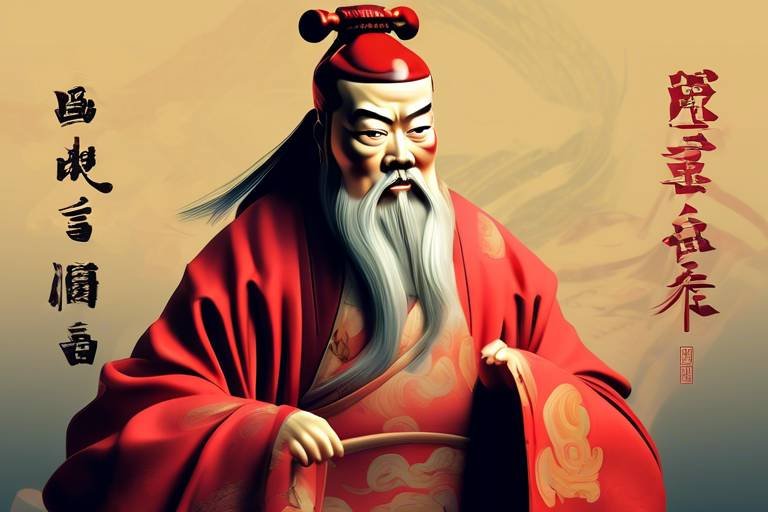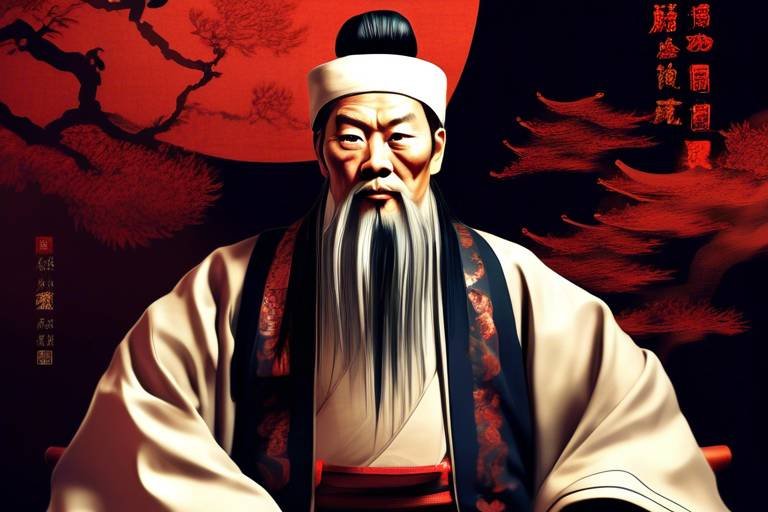Confucius: The Great Philosopher
Confucius, known as one of the greatest philosophers in Chinese history, left a profound impact on society through his moral and ethical teachings. His principles have transcended time and continue to influence cultures worldwide. Let's delve into the life, teachings, and legacy of this remarkable thinker.

Early Life and Background
Exploring the life, teachings, and impact of Confucius, one of the most influential philosophers in Chinese history. Learn about his moral and ethical principles that shaped Chinese society and continue to resonate globally.
Delve into Confucius's upbringing, education, and the historical context in which he lived. Discover how his early experiences influenced his philosophical beliefs and teachings.
Confucius, also known as Kong Qiu, was born in 551 BCE in the state of Lu, located in present-day Shandong Province, China. Growing up in a time of political turmoil and social unrest, he experienced firsthand the chaos and disarray that plagued ancient China. Despite facing adversity, Confucius showed a keen interest in learning from a young age and sought to make sense of the world around him.
His early education focused on the classics and traditional rituals, instilling in him a deep respect for the wisdom of the past. Confucius's passion for knowledge and his desire to bring order to society led him to develop his philosophical ideas, which would later form the basis of Confucianism.
As he matured, Confucius embarked on a journey to seek knowledge and wisdom, traveling to various states in China to study different schools of thought and governance. His experiences during this period shaped his understanding of morality, ethics, and the role of the individual in society.
By immersing himself in the cultural and intellectual milieu of ancient China, Confucius laid the foundation for his teachings on virtue, social harmony, and the importance of ethical conduct. His early life experiences served as a crucible for the development of his profound philosophical insights, which would go on to influence generations to come.

Key Teachings and Philosophy
Confucius's philosophy is deeply rooted in the core principles of Confucianism, which emphasize the importance of ethical behavior, social harmony, and personal development. One of his key teachings is the concept of filial piety, which stresses the respect and obedience that children should show towards their parents and elders. This principle serves as the foundation of Confucian ethics, highlighting the significance of family relationships and societal order.
Furthermore, Confucius believed in the value of righteousness and moral integrity in all aspects of life. He emphasized the importance of individuals acting with honesty, sincerity, and benevolence, promoting a sense of duty towards others and the community. By upholding these virtues, individuals could contribute to a harmonious society based on mutual respect and trust.
Another key aspect of Confucius's philosophy is the emphasis on the importance of ritual in daily life. Rituals were seen as a way to cultivate virtue, maintain social order, and express respect for tradition. Confucius believed that practicing rituals with sincerity and reverence could lead to personal growth and societal harmony, reinforcing the interconnectedness of individuals within a community.

Impact on Chinese Society
Confucius's impact on Chinese society was profound and far-reaching, shaping the cultural, social, and political landscape of ancient China. His emphasis on social harmony and respect for authority laid the foundation for a hierarchical society based on ethical values and moral principles. Confucius believed in the importance of education and self-cultivation, advocating for the cultivation of virtuous individuals who would contribute to the well-being of the community.
One of the key aspects of Confucius's teachings was the concept of ren, often translated as benevolence or humanity. This principle emphasized the importance of empathy, compassion, and altruism in human relationships, promoting mutual respect and harmony within society. Confucius believed that by practicing virtuous behavior and ethical conduct, individuals could contribute to the greater good of society as a whole.
Furthermore, Confucius's teachings on filial piety underscored the significance of family values and ancestral reverence in Chinese culture. The emphasis on respect for elders and obedience to authority permeated all levels of society, reinforcing the traditional hierarchy and social order in Chinese communities.
Confucius's influence extended beyond personal ethics and social relationships to the realm of governance and administration. His ideas on good governance emphasized the importance of virtuous leadership, ethical decision-making, and meritocracy in ensuring political stability and social harmony. The enduring impact of Confucius's teachings on Chinese society can be seen in the continued emphasis on ethical conduct and social responsibility in both the public and private spheres.

Legacy and Global Influence
Confucius, often referred to as the Great Philosopher, left a profound legacy that extended far beyond the borders of China. His teachings on ethics, morality, and governance continue to influence not only Chinese society but also resonate globally. The impact of Confucius can be seen in various aspects of East Asian culture, from education to social relationships, highlighting his enduring global influence.
One of the key aspects of Confucius's legacy is his emphasis on social harmony and respect for authority. His teachings promoted the idea of a well-ordered society where individuals knew their place and fulfilled their roles dutifully. This emphasis on hierarchy and order has had a lasting impact on Chinese society, shaping its social structure and governance systems.
Furthermore, Confucius's teachings on education have also left a significant mark on Chinese culture. He believed in the transformative power of education and the importance of moral development alongside intellectual growth. This emphasis on holistic education has influenced traditional Chinese educational practices and continues to shape modern approaches to learning.
Confucius's philosophy has not only influenced Chinese society but has also spread beyond its borders, impacting various aspects of global culture. His emphasis on ethics, social responsibility, and harmony has resonated with people around the world, offering insights into addressing modern societal challenges. The enduring relevance of Confucius's teachings in today's world underscores the timeless wisdom of his philosophy.

Comparison with Other Philosophies
When comparing Confucianism with other philosophical traditions such as Taoism and Legalism, it becomes evident that each school of thought offers unique perspectives on ethics, governance, and human nature. Confucius's emphasis on moral values, social harmony, and the importance of education sets his philosophy apart from the others. Taoism, on the other hand, focuses on the natural order of the universe, spontaneity, and simplicity, advocating for a more intuitive approach to life. In contrast, Legalism prioritizes strict laws, centralized authority, and the use of power to maintain social order.
While Confucianism promotes the idea of self-cultivation and virtuous behavior as the foundation of a harmonious society, Taoism encourages individuals to align themselves with the flow of nature and embrace simplicity. Legalism, with its emphasis on strict laws and punishment, takes a more authoritarian approach to governance. These philosophical differences have shaped Chinese society in unique ways, influencing everything from government policies to social norms.
Despite their divergent views, these philosophical traditions have interacted and influenced each other throughout Chinese history. Confucianism's focus on ethical behavior has often been complemented by Taoist principles of balance and harmony, while Legalist ideas have sometimes clashed with Confucian values of benevolence and righteousness. The dynamic interplay between these philosophies has enriched Chinese thought and contributed to the complexity of Chinese culture.

Contemporary Relevance
Exploring the life, teachings, and impact of Confucius, one of the most influential philosophers in Chinese history. Learn about his moral and ethical principles that shaped Chinese society and continue to resonate globally.
Confucius's teachings hold significant relevance in today's fast-paced and interconnected world. His emphasis on ethics, social responsibility, and harmony offers valuable insights into addressing modern societal challenges. In a world filled with conflicts and ethical dilemmas, Confucius's teachings on moral behavior and social order provide a timeless guide for individuals and societies alike.

Popular Quotes and Sayings
Confucius, known for his profound wisdom and timeless teachings, has left behind a legacy of popular quotes and sayings that continue to inspire and resonate with people around the world. One of his most famous quotes is, "It does not matter how slowly you go as long as you do not stop." This quote emphasizes the importance of perseverance and determination in achieving one's goals, encouraging individuals to keep moving forward despite facing challenges.
Another well-known saying attributed to Confucius is, "Our greatest glory is not in never falling, but in rising every time we fall." This quote highlights the value of resilience and the ability to learn from failures, emphasizing the importance of perseverance and self-improvement in the face of adversity.
Confucius also emphasized the importance of self-reflection and introspection with the quote, "Real knowledge is to know the extent of one's ignorance." This saying encourages individuals to acknowledge their limitations and continuously seek knowledge and self-improvement, promoting humility and a growth mindset.
One of Confucius's most profound teachings is encapsulated in the quote, "To see what is right and not do it is the want of courage." This powerful statement underscores the importance of moral courage and taking action in accordance with one's principles, urging individuals to uphold ethical values and act with integrity.
Overall, Confucius's popular quotes and sayings serve as timeless reminders of the importance of virtue, self-improvement, and ethical conduct in both personal and societal contexts, continuing to inspire and guide individuals seeking wisdom and guidance.

Modern Interpretations and Criticisms
Modern Interpretations and Criticisms of Confucius's philosophy have sparked diverse discussions in contemporary scholarship and popular culture. While some scholars praise the enduring relevance of Confucian values in today's society, others critique his teachings for being too traditional and hierarchical. One modern interpretation focuses on adapting Confucian principles to address current global challenges, such as environmental sustainability and social inequality.
Moreover, Confucius's emphasis on hierarchy and obedience has been criticized for potentially stifling individual creativity and promoting conformity. Critics argue that his rigid moral framework may limit personal freedom and hinder social progress in a rapidly changing world. However, proponents of Confucianism defend its emphasis on social harmony and ethical conduct as essential for maintaining stability and order in society.
In popular culture, Confucius's image has been both revered and parodied, with various media representations highlighting different aspects of his philosophy. From inspirational quotes plastered on motivational posters to comedic portrayals in movies and TV shows, Confucius's legacy continues to be a subject of fascination and interpretation.
Contemporary scholars engage in ongoing debates about the applicability of Confucian values in diverse cultural contexts and the extent to which his teachings can address contemporary ethical dilemmas. By critically examining Confucius's philosophy through a modern lens, scholars aim to extract valuable insights while also acknowledging the need for adaptation and evolution in a rapidly changing world.
Frequently Asked Questions
- What are the core principles of Confucianism?
Confucianism is centered around concepts such as filial piety, righteousness, and the importance of ritual in daily life. These principles emphasize the importance of social harmony, respect for authority, and ethical behavior in personal and societal interactions.
- How did Confucius influence Chinese society?
Confucius had a profound impact on Chinese society by promoting values of education, ethical governance, and social harmony. His teachings on the importance of family, respect for elders, and the cultivation of virtue continue to shape Chinese culture and values to this day.
- What is the legacy of Confucius in the modern world?
Confucius's philosophy has spread beyond China and continues to influence global ethics, education, and social relationships. His emphasis on moral values, social responsibility, and harmony offers valuable insights into addressing contemporary societal challenges and fostering a more harmonious world.



















